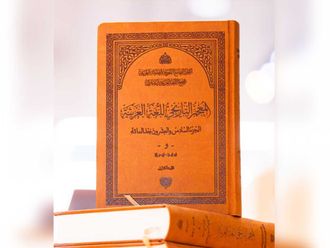
Dubai: Verdicts in Personal Status cases in Dubai — such as those dealing with alimony, children’s custody, dowry, visiting or seeing a child by non-custodial parents — will now have to be issued in a single session. Sheikh Maktoum bin Mohammed bin Rashid Al Maktoum, Deputy Ruler of Dubai and Chairman of Dubai Judicial Council, has ordered the issuance of this new rule under the ‘Regulatory Procedures Guide on Personal Affairs’, which offers a set of guidelines on unified litigation procedures at Dubai courts to deal with cases related to personal affairs.
The order came in line with the directives of His Highness Sheikh Mohammed bin Rashid Al Maktoum, Vice-President and Prime Minister of the UAE and Ruler of Dubai, to support judicial work and promote family stability and cohesion.
According to judicial officials, Dubai’s new regulatory guide on personal affairs will cut time and efforts and boost the family’s stability, especially for children.
Litigation procedures
Taresh Eid Al Mansouri, Director General of Dubai Courts, welcomed the decision, saying that the guide will help streamline and standardise litigation procedures related to personal affairs. He praised the UAE leadership for placing high priority on the wellbeing and stability of families and society.
“The new guide offers solutions to some of the judicial challenges related to personal statuses and supports the issuance of fair and impartial rulings, which are key to ensuring family stability in Dubai in accordance with the principles of Islamic law and the provisions of UAE civil law,” said Al Mansouri.
Comprehensive guidelines
Justice Dr Jassim Al Housani, a judge at the Court of Cassation, Dubai Courts, said that given the impact of personal affairs claims on UAE society, the guide will provide a set of comprehensive guidelines on unified court procedures in adjudicating personal affairs disputes. “The guide will serve as a reference point for Dubai Courts’ judges and administrators,” Al Housani said.
Meanwhile, Wageh Amin Abdelaziz, senior legal adviser at World Center Advocates and Legal Consultants, told Gulf News that the guide has a package of new procedures to cut time and effort in personal status cases as it has been instructed to issue a verdict in one hearing. “The guide will facilitate legal procedures, especially in cases related to alimony, personal status petitions, children’s custody, dowry money, for non-custodial parents to visit or see a child, and travel bans,” Abdelaziz told Gulf News.
Details of the guide
The guide, which has nine chapters, outlines innovative judicial solutions for court proceedings including: One-day court proceedings in matters of personal status, verdicts on personal status petitions, travel bans and permissions, alternative solutions for the liquidation of disputed estates, provision of family counselling with the aid of telecommunication technologies, the role of judges in supervising the guidance process, the functions of family guidance committees, the duties of the family counsellor, and forms for reconciliation of agreements.
The new guide also assists judges in standardising the criteria for assessing alimony and includes templates to help judges prepare the text of court rulings.
Alimony
Wageh Amin Abdelaziz told Gulf News that the guide unifies the alimony standards to guarantee decent living for the family by estimating the alimony for the wife and children. “The court will decide the amount of alimony, which should be no more than 60 per cent of the person’s income. If the person who is paying the alimony has debts or loans deducted from his income then it will be considered by court also,” Abdelaziz said.
As per the guidance, the alimony is between Dh700 to Dh5,000 per month, based on income, and between Dh500 to Dh4,000 for each child. “The guide instructs to set a time and place to see a child for non-custodial parents. It’s an important part of the guide to ensure a family’s stability.”
Article 3 of the guide states that non-custodial parents cannot accompany a fostered child who is less than two years old. The article also adds that meeting a child who is under two years should be at the residence of the custodial parent.










